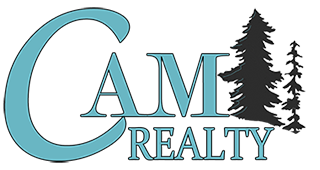Lakefront Home Boat and Dock Care for your Clermont or Lakefront home
Much like your car, your boat needs routine maintenance as well. However, when caring for your boat on your lake front property in Orlando, you must take special care as any basic task like polishing, cleaning or changing the fluids can cause water quality problems if the products used are not handled as they should be. When caring for your boat, be sure to follow these tips:
- Stay away from the lake, its tributaries and storm drains when maintaining your boat.
- Use non-toxic products
- Be sure you contain any excess waste products that result from your work.
- Rinse boats more often with plain water so you don’t always need soaps and cleaners.
- Avoid the need for washing with soap all the time by keeping the boat waxed and rinsed after every time you use it.
- Choose non-toxic, phosphate-free, chlorine-free, biodegradable products.
- Take your boat to a commercial car wash where the dirty water goes to the wastewater system.
- Follow the instructions on the label. Twice as much cleaner does not work twice as well.
- Buy only what is needed for a project. Give the leftovers to another boater.
- If you must work near the water, use tarps and work on a small area.
- Pressure washing near the lake is never a good idea as it is difficult to manage the wastewater.
- Dispose of leftover household toxics properly.
It is also important to care for your dock that gives you access to fun on the lake. Depending on the design and construction materials, docks and floats can make for added problems for wildlife and water quality. For maintenance of docks and floats on your property, here are some things to know:
New Docks
While docks and floats don’t generally provide good habitat for fish and wildlife, they can act as barriers necessitating that waterfowl, beavers, and otters find refuge further out into the lake.
Larger docks can inhibit the growth of beneficial aquatic plants, by shading the littoral zone. If pilings are not spaced far enough apart, a dock can change the movement of water along the shoreline, causing erosion and deposition. This affects the growth of water plants.
If you are thinking about constructing a dock or float, or making major repairs to the one you already have, you need to obtain the necessary environmental review and permits for your area.
You may think that this seems a bit silly just to build a dock, but any work performed below the ordinary high water mark on the lakeshore has opportunity to cause water quality problems.
If constructed in conjunction with a naturally vegetated shoreline, a dock can provide boat moorage, allow access to the water and reduce human impacts to the environment of the shoreline. Moving heavy use elsewhere and away from the fragile shoreline to a dock can reduce negative influences and even damage to the riparian area. For simple boat moorage, a buoy is the preferred alternative as it causes the least long-term impact to the lake environment.
The materials used in the construction of docks can introduce a variety of contaminants into the lake so be sure you know what you’re building with and how it can affect the water.
Dock Maintenance
Paints, wood preservatives or other chemicals may end up in the lake during routine maintenance, so their use is not permitted over or near surface water. A dock with a natural, unfinished surface is the best option. If your dock or boathouse is already painted, you need to be very careful when maintaining it. It is your job to insure that tarps are used and that the paint scrapings, paint, or other prep materials do not fall into the lake.
Pressure washers are sometimes used for cleaning and prep work but this is not a good idea around lakes. The force of the water from a pressure washer makes it hard to control the amount of material being washed into the lake. A better idea is to scrub or wire brush the surface with tarps around and underneath the work area to contain the scrapings. Bleach, herbicides or pesticides should not be used over the water to control the unwanted living things that take up residence on or around your dock.
Alternatives to Toxic Cleaners
- Soap: choose phosphate free and non-toxic soap but use very little
- Scouring Powders: baking soda
- Fiberglass: baking soda paste
- Decks and Floors: one cup white vinegar in two gallons water
- Windows: one cup vinegar in one cup warm water, rinse and squeegee
- Aluminum: two tablespoons cream of tartar in one quart hot water
- Copper: lemon juice and salt
- Brass: Worcestershire sauce or paste made of equal parts salt, vinegar, and water; rinse
- Chrome: apple cider vinegar to clean; baby oil to polish
- Drain Opener: pour vinegar and baking soda in drain and follow with boiling water
- Mildew: paste of equal parts of either lemon juice and salt or vinegar and salt
- Wood: three parts olive oil and one part white vinegar
- For Your Hands: baby oil or margarine
